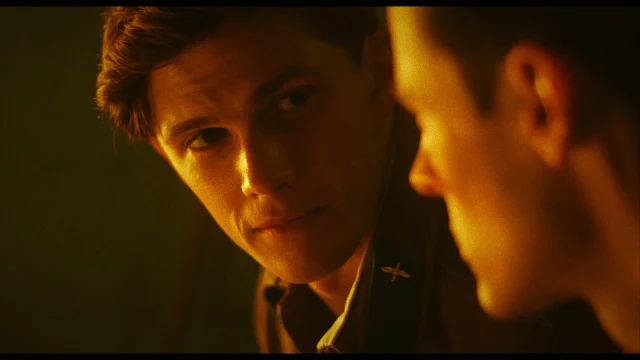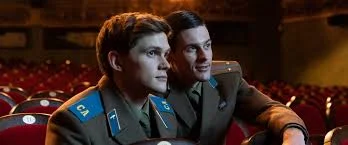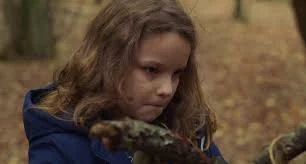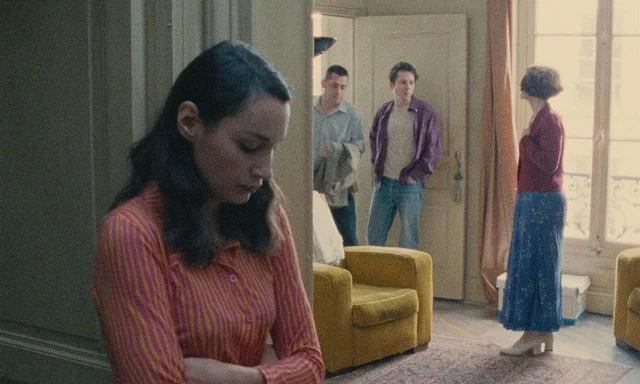Cast: Tom Prior, Oleg Zagorodnii, Diana Pozharaskaya, Jake Henderson, Margus Prangel, Nicholas Woodeson. Screenplay: Peeter Rabane, Tom Prior, based on a book by Sergey Fetisov. Cinematography: Mait Mäekivi. Production design: Eva-Maria Gramakovski, Kalju Kivi, Frantseska Vakkum. Film editing: Tambet Tasuja. Music: Krzysztov A. Janczak.
Sergey, a private in the Soviet air force, and the fighter pilot Roman, the lieutenant he serves as orderly, fall in love. Under the laws of the Soviet military, their relationship puts them in jeopardy of being sentenced to hard labor if it’s found out. Firebird, which gets its name from the Stravinsky ballet that brings them together, is a solid romantic drama with a fine performance by Tom Prior, who also co-wrote the screenplay based on a memoir by the real Sergey. If I have a problem with the movie, it’s because the focus is almost necessarily on Sergey, given its source. We get very little backstory for Roman, played handsomely by the Ukrainian actor Oleg Zagorodnii, even though the burden of the conflict between love and duty falls largely on him. By contrast, we learn of Sergey’s boyhood love and its painful end, and about his post-service career as an actor. The lack of focus on Roman’s background almost reduces him to a beautiful object of desire, and saps the tragic impact of his story. Still, Firebird is an impressive debut feature for Estonian writer-director Peeter Rabane, and a cut above most contemporary movie love stories, especially those based in the world of LGBT relationships.




























































